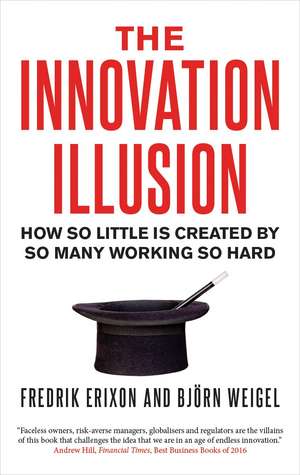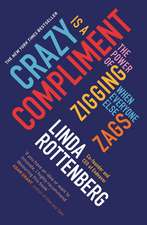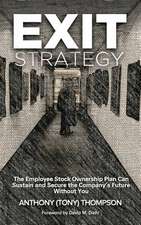The Innovation Illusion: How So Little Is Created by So Many Working So Hard
Autor Fredrik Erixon, Björn Weigelen Limba Engleză Paperback – 21 noi 2017
Timely, compelling, and certain to be controversial—a deeply researched study that reveals how companies and policy makers are hindering innovation-led growth
Conventional wisdom holds that Western economies are on the threshold of fast-and-furious technological development. Fredrik Erixon and Bjorn Weigel refute this idea, bringing together a vast array of data and case studies to tell a very different story.
With expertise spanning academia and the business world, Erixon and Weigel illustrate how innovation is being hampered by existing government regulations and corporate practices. Capitalism, they argue, has lost its mojo. Assessing the experiences of global companies, including Nokia, Uber, IBM, and Apple, the authors explore three key themes: declining economic dynamism in Western economies; growing corporate reluctance to contest markets and innovate; and excessive regulation limiting the diffusion of innovation. At a time of low growth, high unemployment, and increasing income inequality, innovation-led growth is more necessary than ever. This book unequivocally details the obstacles hindering our future prosperity.
Conventional wisdom holds that Western economies are on the threshold of fast-and-furious technological development. Fredrik Erixon and Bjorn Weigel refute this idea, bringing together a vast array of data and case studies to tell a very different story.
With expertise spanning academia and the business world, Erixon and Weigel illustrate how innovation is being hampered by existing government regulations and corporate practices. Capitalism, they argue, has lost its mojo. Assessing the experiences of global companies, including Nokia, Uber, IBM, and Apple, the authors explore three key themes: declining economic dynamism in Western economies; growing corporate reluctance to contest markets and innovate; and excessive regulation limiting the diffusion of innovation. At a time of low growth, high unemployment, and increasing income inequality, innovation-led growth is more necessary than ever. This book unequivocally details the obstacles hindering our future prosperity.
Preț: 110.24 lei
Nou
Puncte Express: 165
Preț estimativ în valută:
21.10€ • 22.56$ • 17.59£
21.10€ • 22.56$ • 17.59£
Carte disponibilă
Livrare economică 27 martie-10 aprilie
Livrare express 13-19 martie pentru 27.44 lei
Preluare comenzi: 021 569.72.76
Specificații
ISBN-13: 9780300230475
ISBN-10: 0300230478
Pagini: 312
Ilustrații: 20 b-w illus.
Dimensiuni: 143 x 229 x 23 mm
Greutate: 0.45 kg
Editura: Yale University Press
Colecția Yale University Press
ISBN-10: 0300230478
Pagini: 312
Ilustrații: 20 b-w illus.
Dimensiuni: 143 x 229 x 23 mm
Greutate: 0.45 kg
Editura: Yale University Press
Colecția Yale University Press
Recenzii
"Fredrik Erixon and Björn Weigel make a thought-provoking and refreshingly non-ideological argument that a bleak future lies ahead unless capitalism undergoes a shake-up."—Matthew Rees, Wall Street Journal
"Erixon and Weigel know how to make their case seductive and entertaining. They describe the four horsemen of capitalist decline riding down innovation before it has any chance of reaching the wider world . . . liberally sprinkled with colourful examples . . . nourished with statistics. . . . The book is eloquent in laying out its thesis."—Peggy Hollinger, Financial Times
"Faceless owners, risk-averse managers, globalisers and regulators are the villains of this book that challenges the idea that we are in an age of endless innovation. On the contrary, the authors point out, many innovations are more fun than fundamental."—Andrew Hill, "Best Books of 2016: Business," Financial Times
"For a serious book of its kind on economics, one that attempts to bridge the divide between think-tank land and the general reader, The Innovation Illusion is unusually clear and leavened with popular culture references. The Smiths and James Joyce are both quoted. . . . This is an important book that diagnoses the extent of the economic problem and prescribes a strong dose of disruption."—Iain Martin, Times
“For any scholar interested in understanding why the rate of innovation in the United States is declining, this book will prove valuable.”—Carl J. Schramm, ILR Review
Economic stagnation afflicts the developed world, and the puzzle of slow productivity growth is the leading economic question of our age. Erixon and Weigel have developed a profoundly original and multi-faceted explanation rooted in the dead weight of corporate bureaucracy, with its striving for short-term profits and avoidance of risk, as well as government-created regulatory complexity and policy uncertainty. The book is concise, lively, full of examples, and deeply researched from sources that span economics and management science.
"Economic stagnation afflicts the developed world, and the puzzle of slow productivity growth is the leading economic question of our age. Erixon and Weigel have developed a profoundly original and multi-faceted explanation rooted in the dead weight of corporate bureaucracy, with its striving for short-term profits and avoidance of risk, as well as government-created regulatory complexity and policy uncertainty. The book is concise, lively, full of examples, and deeply researched from sources that span economics and management science."—Robert J. Gordon, Stanley G. Harris Professor in the Social Sciences, Northwestern University, and author of The Rise and Fall of American Growth
Innovation is the life blood of the modern economy and our economies seem to be a litre or two short. This highly accessible book argues convincingly that the problems we are having with R&D is not the ‘R’ part, it is the ‘D’ part. We are not lacking invention, we are lacking the policy and competitive environment needed to turn new science into new, economically useful product and processes. This is an important and insightful read for all those concerned by big-picture economic problems.
"A very well written account of how corporate bureaucracy, rent-seeking and regulation are slowing the pace of innovation."—John Kay, Financial Times and author of Other People’s Money
"Today's hidebound capitalism is throttling not just the west’s economic growth, but even the aspirations of its people. If dynamism is to be regained, argues this thought-provoking book, we must reject the rentier capitalism that masquerades as the real thing. This argument for a more dynamic market economy is not just challenging; it is also of huge importance."—Martin Wolf, Financial Times
"Erixon and Weigel know how to make their case seductive and entertaining. They describe the four horsemen of capitalist decline riding down innovation before it has any chance of reaching the wider world . . . liberally sprinkled with colourful examples . . . nourished with statistics. . . . The book is eloquent in laying out its thesis."—Peggy Hollinger, Financial Times
"Faceless owners, risk-averse managers, globalisers and regulators are the villains of this book that challenges the idea that we are in an age of endless innovation. On the contrary, the authors point out, many innovations are more fun than fundamental."—Andrew Hill, "Best Books of 2016: Business," Financial Times
"For a serious book of its kind on economics, one that attempts to bridge the divide between think-tank land and the general reader, The Innovation Illusion is unusually clear and leavened with popular culture references. The Smiths and James Joyce are both quoted. . . . This is an important book that diagnoses the extent of the economic problem and prescribes a strong dose of disruption."—Iain Martin, Times
“For any scholar interested in understanding why the rate of innovation in the United States is declining, this book will prove valuable.”—Carl J. Schramm, ILR Review
Economic stagnation afflicts the developed world, and the puzzle of slow productivity growth is the leading economic question of our age. Erixon and Weigel have developed a profoundly original and multi-faceted explanation rooted in the dead weight of corporate bureaucracy, with its striving for short-term profits and avoidance of risk, as well as government-created regulatory complexity and policy uncertainty. The book is concise, lively, full of examples, and deeply researched from sources that span economics and management science.
"Economic stagnation afflicts the developed world, and the puzzle of slow productivity growth is the leading economic question of our age. Erixon and Weigel have developed a profoundly original and multi-faceted explanation rooted in the dead weight of corporate bureaucracy, with its striving for short-term profits and avoidance of risk, as well as government-created regulatory complexity and policy uncertainty. The book is concise, lively, full of examples, and deeply researched from sources that span economics and management science."—Robert J. Gordon, Stanley G. Harris Professor in the Social Sciences, Northwestern University, and author of The Rise and Fall of American Growth
Innovation is the life blood of the modern economy and our economies seem to be a litre or two short. This highly accessible book argues convincingly that the problems we are having with R&D is not the ‘R’ part, it is the ‘D’ part. We are not lacking invention, we are lacking the policy and competitive environment needed to turn new science into new, economically useful product and processes. This is an important and insightful read for all those concerned by big-picture economic problems.
"A very well written account of how corporate bureaucracy, rent-seeking and regulation are slowing the pace of innovation."—John Kay, Financial Times and author of Other People’s Money
"Today's hidebound capitalism is throttling not just the west’s economic growth, but even the aspirations of its people. If dynamism is to be regained, argues this thought-provoking book, we must reject the rentier capitalism that masquerades as the real thing. This argument for a more dynamic market economy is not just challenging; it is also of huge importance."—Martin Wolf, Financial Times
Notă biografică
Fredrik Erixon is the director and cofounder of the European Centre for International Political Economy (ECIPE). Björn Weigel is a business strategist and investor/entrepreneur with extensive experience in working with innovative companies and start-ups. They both live in Sweden.






















